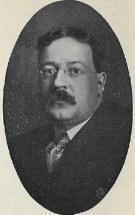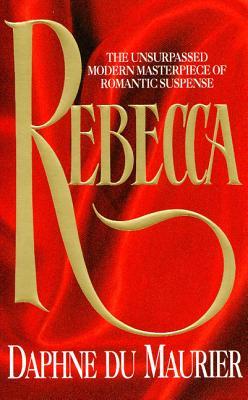Katherine Nabity's Blog, page 191
April 12, 2015
ROW 80 ~ Sunday Update, 4/12
Had a good Wednesday, followed by a brain-fog Thursday. Had a good Friday, followed by a goof-off Saturday. Brain fog sucks. Since the beginning of April, I’ve had two “goof-off” days and still wrote 500 words on those days. On Thursday, I managed 47 words. I’ve written 10K in April, which means I’m behind, but not yet unfixably behind.
After my update on Wednesday, I added a few more goals. Some of them are things that were in the “no due date” section of my Todoist and some were inspired by reading other ROWer’s goals. I’ve resisted adding reading/blogging/education/exercise goals mainly because I want ROW80 to help me focus on writing. Those other categories are pretty easy for me to keep up with.
Goals
Writing
1000 words/day average on In Need of Luck in April or until done. – Averaging 922.
New! Daily free write. – Added on Wednesday; wrote Thus, Fri, and this morning.
New!��For May/June – Scene rewrites for PHYSICa.
New!��For May/June – Transcribe free write bits that might be useful to Abbott project.
Reading, related to writing
Finish reading River City Empire (related to next possible writing project) by the end of April. – Starting on 114/326.
New! For May/June – The Call of Stories by Robert Coles
Publishing
New descriptions/categories/tags for Weordan books. (April 15th) – Need to get this done Monday/Tuesday.
Brainstorm alternate tags for books already published. – No movement.
New!��List of reviewer contacts. – No movement.
Please, check out how other Round of Words participants are doing with their goals.


April 11, 2015
Deal Me In, Week 15 ~ “Electrification”
Hosted by Jay @ Bibliophilopolis
“Electrification” by Mikhail Zoshchenk
Card picked: King of Hearts
From: Online
Thoughts: One of the shortest pieces I’ve read for Deal Me In this year.
During the 1920s, there was a massive plan to “electrify” the newly formed Russian Socialist Federative Soviet Republic. Lenin believed that modernity could be brought to the whole of Russia through electricity for everyone. Zoshchenk’s little parable is about a couple whose building is recently hooked up. In the bright light, they see just how depressing their surroundings are:
In our room, for instance, we had a sofa. I���d always though it wasn���t a bad sofa ��� even quite a good sofa! In the evenings I used to sit on it. But now with this electricity ��� heavens above! Some sofa! Bits sticking up, bits hanging down, bits falling out. How can I sit on such a sofa? My soul protests.
The husband’s solution is to try and spruce the place up. He spends quite a bit of money on whitewash. His wife, she has a different solution.
This is a satire aimed at communism: “light” would bring dissatisfaction to the Russian people when they finally “see” their surroundings. Generally, I’m not a fan such, which often makes Russian literature a challenge for me, but Zoshchenk is quick and funny. This is might be the most charming satire of communism I’ve ever read.


April 9, 2015
Review ~ Rebecca
“Last night I dreamt I went to Manderley again.”
So the second Mrs. Maxim de Winter remembered the chilling events that led her down the turning drive past the beeched, white and naked, to the isolated gray stone manse on the windswept Cornish coast. With a husband she barely knew, the young bride arrived at this immense estate, only to be inexorably drawn into the life of the first Mrs. de Winter, the beautiful Rebecca, dead but never forgotten… her suite of rooms never touched, her clothes ready to be worn, her servant – the sinister Mrs. Danvers – still loyal. And as an eerie presentiment of the evil tightened around her heart, the second Mrs. de Winter began her search for the real fate of Rebecca… for the secrets of Manderley. (via Goodreads)
When I started reading Rebecca, Eric looked at the cover (the same edition as above) and stated, “That doesn’t look like the sort of book you read.” Despite its sort of romancy cover, I assured him that it was a classic of gothic fiction. Anytime I mentioned the book on Twitter or Reddit, it was greeted with positive responses; more replies than I’ve ever gotten about anything else. I went into Rebecca with no preconceived notions aside from it being one of those classics that I hadn’t gotten to. It came up as a part of the (now defunct) Gothic Challenge and Read-a-longs* and I jumped at the excuse to bump it up my to-be-read list.
Yet, this novel is not at all what I expected.
The narrator is very much what I’d consider a YA character. She is, of course, young. She’s still attempting to figure out where she belongs; asking those questions about who she is supposed to be, who might love her. This isn’t a terrible thing, but she is prone to flights of fancy. Constant flights of fancy. By the end of the book, it feels like every single scene had played out at least once in her head before the actual event. And I found that tedious. She’s also somewhat petty. I get annoyed with stories that are somewhat dependent on a character taking things the wrong way.
I’m also a little disturbed by the fact that our narrator actually seems to have an interest before marriage–sketching–which is inexplicably put aside for no good reason once she reaches Manderley. She’s fairly aimless until she’s called on to stand by her man at the end of the book. Is that horribly romantic? I…guess. I can understand that she’s thrown by her change in position and spends much of her time unsure of how to act, made worse by the circumstances, but she’s really sort of a non-person until the end. This is less a criticism of the book and more of a confession of confusion about why it’s so beloved.
I did like the gothic aspects of the book, although past the halfway point when nothing much had happened, I did go online and “spoiled” the twist for myself. (I’m generally unfazed by spoilers. For me, it’s the journey.) The secrets were nicely kept, with little hints here and there about what’s going on. There are issues of class and heredity throughout. Mrs. Danvers, a servant, proves to be the most powerful character. Manderley, in good gothic tradition, is a character itself. In fact, for me, it’s the best aspect of the book. If I wanted a fictional place to walk, Manderley would be it.
Publishing info, my copy: Avon Books, 1971, mass market paperback
Acquired: Paperback Swap, I believe.
* Books Under the Bed, the blog that was hosting the challenge, has been deleted. But I guess I’ll keep on reading from the list since I’ve become interested in the genre.


April 8, 2015
ROW 80 ~ Wednesday Update, 4/8
I’m at 7202 for April (3052 since Sunday’s post) which means, at the moment, my numbers are good. There *is* a catch. Right now, the document includes some bits that are going to have to be deleted. Eric and I had a plot talk yesterday and it became evident that I needed to juggle my timeline and move an event to a point in time that won’t include one character. Some shifting and rewriting needs to be done. No biggie; this seems to be business-as-usual for my writing.
Goals
Writing
1000 words/day average on In Need of Luck in April or until done. — Doing okay.
Reading, related to writing
Finish reading River City Empire (related to next possible writing project) by the end of April. — No movement. It will be my next nonfiction.
Publishing
New descriptions/categories/tags for Weordan books. (April 15th) — No movement.
Brainstorm alternate tags for books already published. — No movement.
Please, check out how other Round of Words participants are doing with their goals.

April 6, 2015
Magic Monday ~ Review: Magic in Theory
I like Mondays. On Monday, I am refreshed from the weekend and exhilarated by the possibilities of the week ahead. I also like magic. I like its history, its intersection with technology, and its crafty use of human nature.�� I figured I’d combine the two and make a Monday feature that is truly me: a little bit of magic and a look at the week ahead.
Magic in Theory: An Introduction to the Theoretical and Psychological Elements of Conjuring by by Peter Lamont & Richard Wiseman
A useful manual for any magician or curious spectator who wonders why the tricks seem so real, this guide examines the psychological aspects of a magician���s work. Exploring the ways in which human psychology plays into the methods of conjuring rather than focusing on the individual tricks alone, this explanation of the general principles of magic includes chapters on the use of misdirection, sleight of hand, and reconstruction, provides a better understanding of this ancient art, and offers a section on psychics that warns of their deceptive magic skills. (via Goodreads)
A while back I reviewed Sleights of Mind, in which two neuroscientists take a look at what magic and magicians can teach science about how our brains work. In Magic in Theory, two psychologists provide a broader but more organized look at how many of the tried and true techniques in magic have some basis in psychology.
This book is the first attempt to draw together these different theoretical approaches and present them in a way that is accessible to a non-technical readership.
And non-technical means that it’s actually very light on the psychology and it can be read by non-magicians. There are no exposures, per se, but instead definitions of the broad categories of magic and the very basics of how a magician might go about performing those illusions. If you’re new to magic, this book would seem to provide a good introduction, and if you’ve been in magic for a while, I imagine that this is a nice refresher. Included is an extensive bibliography and a chapter on how pseudo-psychics (their term) differ in their methods from magicians.
Lamont and Wiseman know their stuff and aren’t afraid to reference their fellow magicians. I have Peter Lamont’s The Rise of the Indian Rope Trick on my shelf and the rest of his catalog on my wishlist. Richard Wiseman currently has two popular YouTube channels: Quirkology and In59Seconds.
What Am I Reading?
I finished Rebecca! It only took me a month… This week, I’ll be reading Who is Magic Babe Ning? by Ning Cai, with intent to review it next Monday. I’m also starting Tim Prasil’s Help for the Haunted. Another Russian author is on tap for Deal Me in with “Electrification” by Mikhail Zoshchenko.
On the Blog
Wednesday: ROW80 update
Thursday: Review of Rebecca
Saturday: Deal Me In
Sunday: ROW80 update

April 5, 2015
ROW 80 ~ Round 2 Goal Post
Kait Nolan created a writing “challenge” meant to be more flexible, meant to foster butt-in-chair-every-day habits for writers to contrast the kill-yourself-working style of NaNoWriMo. It’s called A Round of Words in 80 Days. Each round is 80 days long, four rounds a year with breaks in between. Goals are whatever you want them to be as long as they’re measurable.
Goals
Writing
5000 words a week on In Need of Luck, until done.
Reading, related to writing
Finish reading River City Empire (related to next possible writing project) by the end of April.
Publishing
New descriptions/categories/tags for Weordan books. (April 15th)
Brainstorm alternate tags for books already published.
So, I’m doing Camp NaNoWriMo in April. But! Only with a 30K word goal. My goal in April is to write 30K on In Need of Luck *or* finish the book. I’ve maintained pace for the first four days and the manuscript is at 58,138. I don’t know if there’s 26,000 more words of story left. (I’m never good at figuring out how long a novel’s going to be.)
My goals for June and July are a little hazy at this point. If I finish In Need of Luck on time, Eric will give it a read/rewrite and, if there are no huge problems, it’ll go off to beta readers. In the meantime, Eric and I are going to workshop some plot ideas for the David Abbot novel. If we hit upon something compelling, I’ll be writing that until critiques of In Need of Luck come in. If we don’t come up with a good idea for Abbott, we’ll start thinking about the next Luck book.
Please, check out how other Round of Words participants are doing with their goals.
(Which will be linked live on Monday, 4/6, when Round 2 goes live!)
A Bit of History, or why I haven’t been a writer
I did ROW 80 in 2011 while working on Luck for Hire, but I think things were already going downhill for me attitude-wise. I believed in my enthusiasm for a while, but that wore thin. I was disappointed that Lucinda at the Window hadn’t been anything near a success in print. I had become a jaded, cynical, grumpy writer. Mix in some family stuff and I fell into a pretty big depression hole.
The last time I did ROW 80 was the second round of 2012. I was working on a dead-in-the-water project, querying agents, and promising myself that I’d write a short story. By 2013, I wasn’t writing about writing any longer. A large part of me didn’t even care about writing anymore. I had decided that my writing wasn’t going anywhere, whether I really cared about it or not. In October of 2013, Eric and I decided to self-publish. I was able to throw myself in formatting manuscripts, building websites, and doing all the administrative things that go into publishing. In the meantime, I kind of hated that we had given up on traditional publishing.
I was theoretically also working on a book about David P. Abbott. Really, I was just letting myself be frustrated. I wasn’t asking for any help with it and I was simply letting myself wallow in my status of “failed writer.” In June of last year, the decision was made to switch to writing a second Luck book. And I’ve been poking along with it, jaded, cynical, grumpy, and uncaring since then.
What’s changed? I’m scared to say that anything has, really. When Eric and I talked last week, I realized that I wanted to be that writer that has *writing* goals again, rather than some idiot non-writer that has publishing goals. I’m not saying publishing goals are bad; it was the non-writer part that sucked. And I realized that there was nothing at all stopping me from being that writer again.
So, here we are. I’m writing and, for the first time in a long time, I *want* to write. Am I over-enthusiastic right now? Maybe. I’ve said “I’m back” so many times in the past. We’ll just have to see how it goes.


April 4, 2015
Deal Me In, Week 14 ~ “The Fatalist”
Hosted by Jay @ Bibliophilopolis
“The Fatalist” by Mikhail Lermontov
Card picked: Three of Hearts
From: Selected Works, Progress Publishers, Moscow, 1976; also available online
Thoughts: “The Fatalist” is the closing section of Lermontov’s A Hero of Our Time. I haven’t read the entire five parts yet, but this story is a curious endpoint.
After an evening of gambling, talk among a group of Russian Army officers turns to the question of predestination (as will happen among Russian Army officers after an evening of gambling, I guess). Our narrator, Pechorin, does not believe in predestination. Vulic, a fellow with a passion and no talent for gambling, wagers that Pechorin is wrong. Vulic takes a gun down the the wall and primes it. Anyone who’s heard of Russian roulette knows where this is going, although the gun in question is not a revolver and this is the first instance of such a feat in literature. A moment before Vulic pulls the trigger, Pechorin is absolutely certain Vulic will die that night. I won’t say if he does or not, but the events of that night and the next morning cause Pechorin to become a fatalist:
I prefer to doubt everything; such a disposition does not preclude a resolute character; on the contrary, as far as I’m concerned, I always advance more boldly when I do not know what is awaiting me.
Personally, I’m more like Pechorin’s friend Maxim Maximych (a more prominent character in early parts of A Hero of Our Time): “…in general he does not care for metaphysical discourses.” I’ll make an exception for Lermontov.
About the Author: I know Lermontov’s poetry more than his prose (something I’ll probably say about many of the Russian authors). He sort of stepped in to fill the void after Pushkin’s death and is known as Russia’s great Romantic.

Deal Me In Lunar Extra ~ “The Invisible Girl”
Hosted by Jay @ Bibliophilopolis
I was very indecisive when picking my Deal Me in Stories, so I added an extra ���Lunar��� twist.
For each full moon, I���ll be reading a horror story written by a woman.
“The Invisible Girl” by Mary Shelley
Card picked: A Jack
From: Online at Gutenberg Australia
Thoughts: This is another tale that borrows some gothic tropes, if lightly. Our narrator isn’t the person directly involved in the story, but heard it from an old woman after he seeks refuge in a curious “ruined” tower that has a lovely painting called “The Invisible Girl” in its upper room. Further, this narrator is set in the early 18th century, not in Shelly’s early 19th. Since the old woman is telling a story that happened many years before *that*, we could place the main events of “The Invisible Girl” near the time��The Castle of Otranto was written (although the events of Walpole’s novel occur centuries in the past). I wonder if this shifting a story backwards in history is meant to excuse some of the actions of the characters. Sir Peter and his widow sister treat��Rosina terribly, but they are people of the past. Surely, people of the present behave more humanely. (Also in the land of Otranto connections I’m probably making up, we also have a heroine with a somewhat Italian sounding name.)
But anyway, the story: Henry, the son of Sir Peter, falls in love with Rosina, an orphan who lives on his father’s estate. Henry and Rosina have grown up together; of course they love each other, but since she has no heredity of note, the couple keep this love secret. All is well until Sir Peter’s sister moves in. She susses out the truth, sends Henry away and besmirches Rosina’s honor. Sir Peter sends her away and she presumably dies in the woods. Sir Peter, we are told, might feel badly about this, but Shelley’s not very convincing when she says so. Henry finds out his love is dead and decides to find her body. Instead, his boat is caught in a nasty storm and is led to safety by a mysterious light in a tower. When he asks nearby folks about it, they tell him the Invisible Girl is responsible. Which of course leads Henry to wonder, is the Invisible Girl the spirit of Rosina?
There’s a twist ending to this tale which I thought was quite nice. Paula Cappa originally posted about this story in October of 2013.
About the Author: Yes, *that* Mary Shelley. She wrote more than Frankenstein. A lot more! This is the first short story I’ve read by her, but it probably won’t be the last.


April 1, 2015
What Else in March
Short Stories
March was a really slow reading month. It took me all month to finish one very meager book. In the meantime, my TBR list of online short stories continues to grow. I did manage to fit two in:
“Gallery” by KJ Kabza – a flash piece from Daily Science Fiction. “I bring back photos of my dreams,” it begins. How can you not click through to read the rest?
I also couldn’t resist a magician story from Annie Neugebauer called “Zanders the Magnificent.” It’s an intriguing take on a magic secret.
Other Life Stuff
I don’t know where March went. It was here and then it was gone.
Basketball season has ended. Nebraska had a pretty bad losing streak at the end and Arizona was knocked out the tournament in the Elite Eight. At this point, I hope Michigan State wins it all.
My ultimate disc league team isn’t doing much better than Nebraska’s basketball team. We beat Eric’s team, but that’s pretty much our only achievement. But that’s okay. It’s been a fun team.
The high point of March was going out for St. Patrick’s Day. That was a first for me. Usually, I stay in, have a Guinness, and listed to some Celtic music. This year, Tyler was in town and we got together with him, Casey, Reif, Nicole, and Jeff. in an evening that included getting overlooked for a table at the pub, ditching the table when we did get it, going to the seafood place next door which was quieter, and then ending up back at pub for a last pint. I drank…too much.

March 30, 2015
Magic Monday ~ The Sphinx, March 1905
I like Mondays. On Monday, I am refreshed from the weekend and exhilarated by the possibilities of the week ahead. I also like magic. I like its history, its intersection with technology, and its crafty use of human nature.�� I figured I’d combine the two and make a Monday feature that is truly me: a little bit of magic and a look at the week ahead.

John N. Hilliard
The February 1905 issue of The Sphinx included a piece about the wizard war between Ching Ling Foo and English magician William Robinson who performed as a Chung Ling Soo. Perennial columnist John Northern Hilliard weighed in on it in the next issue.
We believe that the belligerents have gained publicity enough through an adroit manipulation of the press… We refuse to take it seriously.
Hilliard, an author and critic by trade, was involved in his own scrimmages. In the same March 1905 issue he writes�� of Harry Kellar in a refutation of a column printed in July of the previous year:
“Think of the years,” continues Mr. Stewart, “think of year Harry Kellar has spent in originating and perfecting his apparatus.” Perfecting, yes; for Mr. Kellar is a man of sinew and there is the grip of the blacksmith in his horny hands, and every piece of apparatus he uses must need be three times the ordinary strength in order to withstand the terrific clutch of his fingers.
Hilliard would eventually become the advance man for Howard Thurston, who took over Kellar’s show when Kellar retired.
What Am I Reading?
March has been an incredibly slow reading month. I’m in the home stretch on Rebecca and should have the review next week. I *did* finish Magic in Theory. Review of that should be next Monday. My next nonfiction read will be��Who is Magic Babe Ning?��by magician Ning Cai.
On the Blog
Thursday: What Else in March
Saturday: A Deal Me In double feature
Sunday: ROW80, Round 2 kick-off post












